According to Marquette financial documents, Marquette men’s basketball head coach Steve Wojciechowski was paid around $2.02 million in fiscal year 2019. Meanwhile, former women’s basketball head coach Carolyn Kieger was paid roughly $485,000, which is approximately 25% of Wojciechowski’s salary.
This trend of men’s teams’ coaches receiving more payment appears to be most present when comparing men’s and women’s basketball.
According to the U.S. Department of Education’s Equity in Athletics Data Analysis, Marquette pays head coaches and assistant coaches very differently. The average institutional salary per head coach for men’s teams is just over $500,000. For the women’s teams, the average drops to around $170,000. Meanwhile, the men’s teams’ assistant coaches bring in, on average, just under $150,000 while the women’s teams assistant coaches bring in around $72,000.
There is an argument that fans and revenue are a big reason why there is a division in pay for men’s and women’s sports.
According to the NCAA’s records of men’s and women’s basketball attendance in 2019, the Marquette men’s team averaged just over 15,000 fans per game and the women’s team averaged just under 2,000 per game.
When discussing revenue, the men’s program also brought around $15 million more than the women’s program.
Wojciechowski said he disagrees with the market for men’s and women’s sports.
“It’s a very sensitive issue, obviously. When you talk about women’s sports, there’s tremendous value in that,” Wojciechowski said. “When it comes to what the market says, it’s what the market says. I don’t agree with it necessarily but if advertisers or TV and what not are willing to pay a certain premium for one product versus another, that’s what the market says. I truly wish that there would be equal pay.”
With the discrepancy between men’s and women’s basketball salaries being bluntly noticeable, in fiscal year 2019 Kieger was among the university’s highest compensated employees. After all benefits and base compensation were calculated out, Wojciechowski and Marquette University President Michael Lovell were the highest compensated, respectively. Kieger was fifth-highest, after the university’s former provost Dan Myers and the director of athletics, Bill Scholl.
Head women’s basketball coach Megan Duffy brought up the history of men’s and women’s pay that has played a large part in the situation.
“There’s history that comes into play of how long, just talking specific to sports, certain professional leagues and the history of their revenue and how they’ve been created,” Duffy said. “There’s still a lot of room to grow with women’s sports. I’d like to make the statement of ‘yeah, we want equal pay,’ but we also have made some big strides by using our voices.”
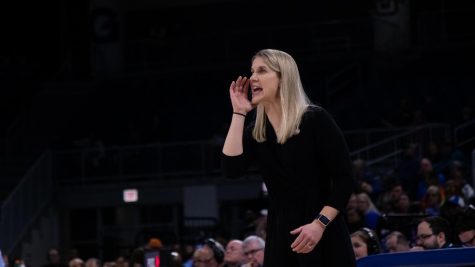
Duffy also mentioned that even though there is a difference in pay, her relationship with Wojciechowski has not been affected.
“The market value is different in both sports. If we look at that, it’s not as simple as comparing numbers across the board,” Duffy said. “By no means does that tear us apart … and what we’re doing to try and build our programs here. As you can see when you just look at the numbers, there definitely is a discrepancy. I know that all parties, whether that’s Marquette or across the country, are trying to bridge that gap in some form.”
Head men’s soccer coach Louis Bennett said that he thinks good coaches should be rewarded, regardless of if they are male or female.
“Coaches that have respect and do things right should get respect and they should get rewarded, irrespective of gender,” Bennett said. “The business of sports is different. When you represent your country, I think you should get equal pay, all the time.”
Head women’s soccer coach Frank Pelaez spoke about his belief of what the pay should look like.
“I think it should be fair everywhere. I try not to compare or look at other coaches and what they’re doing or what they’re salaries are,” Pelaez said. “To me, it’s about being able to be fair all around the board. You have to look at what they do outside of just coaching as well.”
When looking back, the gender gap in coach salaries has been brought up and studied before.
In 2012, the Marquette Wire’s Jennifer Zahn reported that “additionally, in 2010-2011, Marquette contributed more funding to women’s teams for athletically related student aid. Men’s teams received $1,753,051, while women’s teams received $2,454,167. Recruiting expenses, however, weren’t close, with $1,289,560 spent on men’s teams and $171,813 on women’s teams — about 13% of the men’s expenses.”
This trend still holds true today as women’s teams received more funding from Marquette related to student aid and men’s teams spend more in recruiting expenses.
In the 2018-19 year, Marquette’s women’s teams received just over $4 million in athletically-related student aid, whereas men’s teams received around $3.2 million. Looking at that information from the Department of Education, the men’s teams had roughly $980,000 in recruiting expenses. The women’s team spent close to 28% of recruiting expenses spent by the men’s team, according to the U.S Department of Education Equity in Athletics Data Analysis.
Marquette men’s lacrosse coach Andrew Stimmel spoke out on what the men’s teams can do in the future to promote and support the women’s teams.
“At the end of the day, it’s us having a great partnership with, for instance, women’s lacrosse (and) really making sure we’re doing everything we can to get out and support their games,” Stimmel said. “We look at it as a partnership and just trying to be as supportive as we can.”
Wojciechowski similarity addressed the relationship between the men’s and women’s basketball teams.
“Both teams understand the level of commitment it takes to be a part of a basketball program that is part of the fabric of the university and all the responsibilities that come with that,” Wojciechowski said.
With the COVID-19 pandemic still happening, both men’s and women’s basketball head coaches chose to take a 5% pay cut.
“There’s a shared responsibility when it comes to adversity that affects the entire university whether you’re talking about faculty, staff, administration or students,” Wojciechowski said. “I’m a part of the university team and so, being a team player, it’s only natural to pay my fair share and again, I was happy to do that because it’s the right thing to do and the best thing for the university.”
Duffy reiterated Wojciechowski’s comments.
“I wanted to do everything I can to be a great team player and help, kind of ease in any way I can with the community, with the bigger picture,” Duffy said.
This story was written by Bryan Geenen. He can be reached at byran.geenen@marquette.edu.

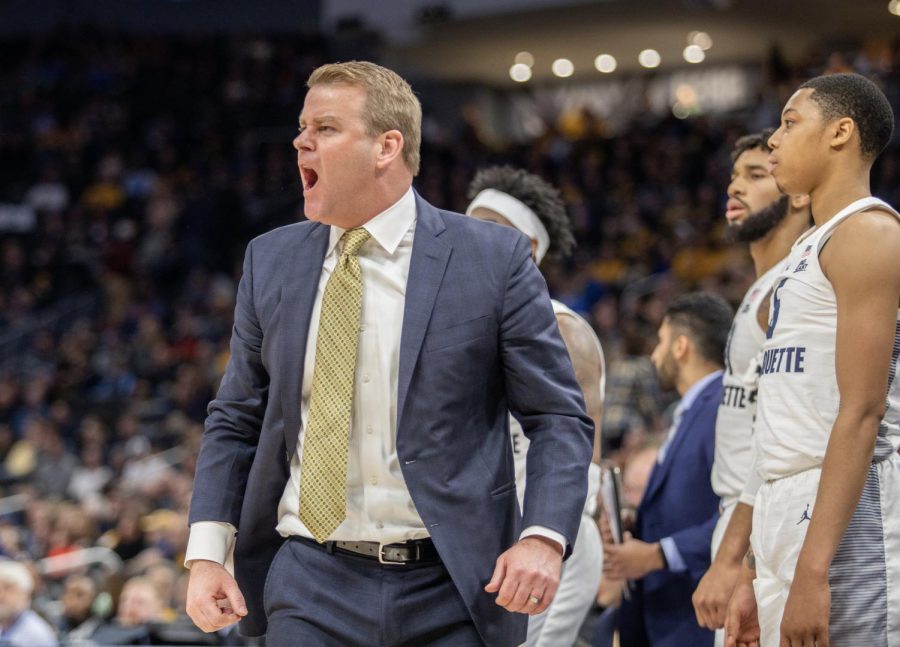

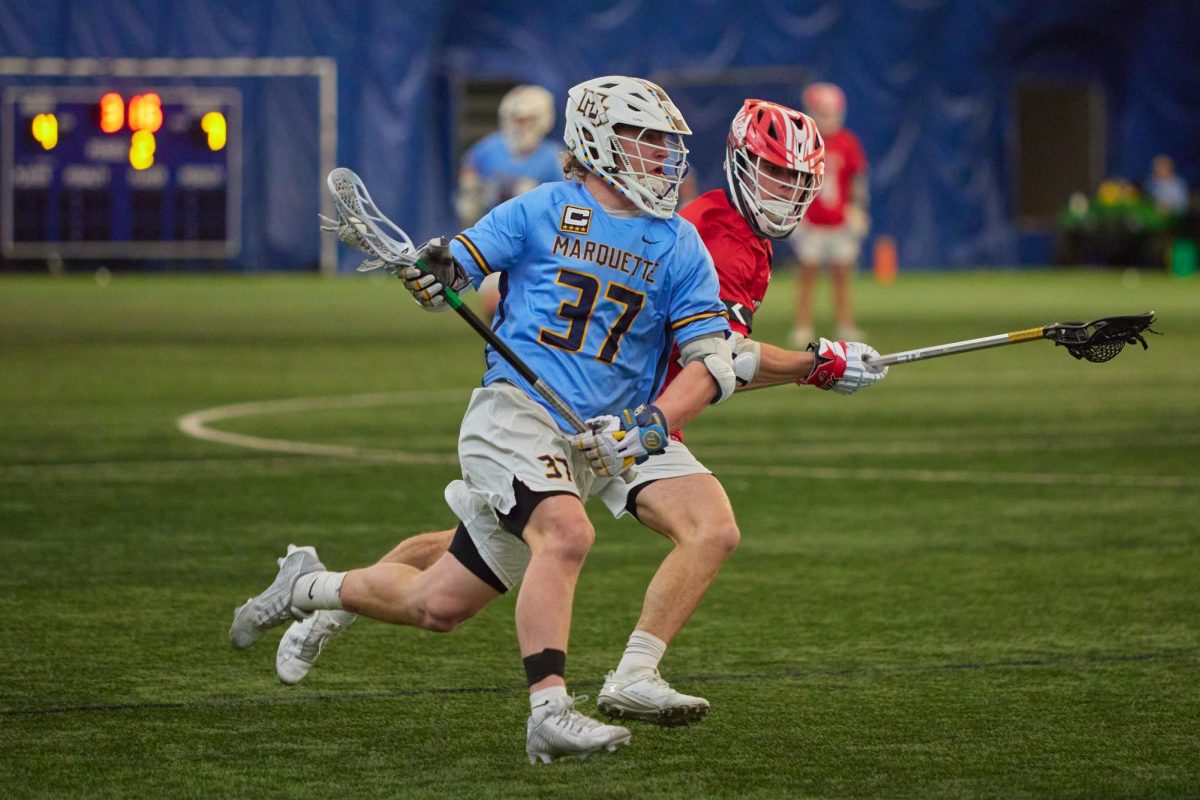
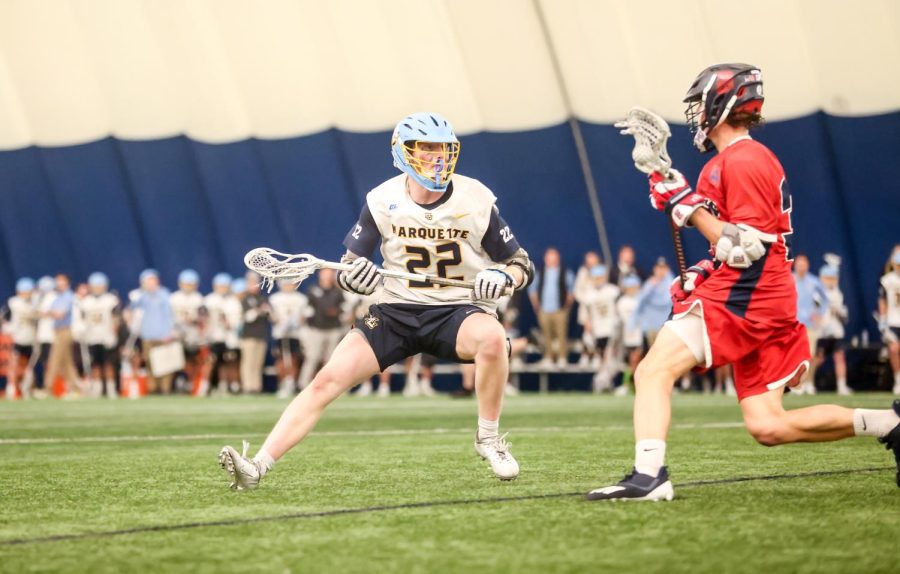
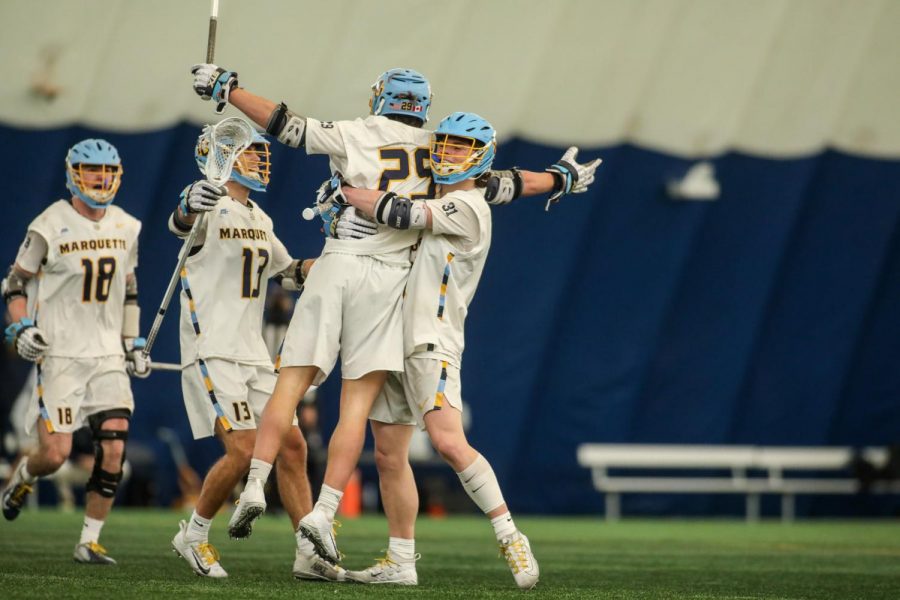

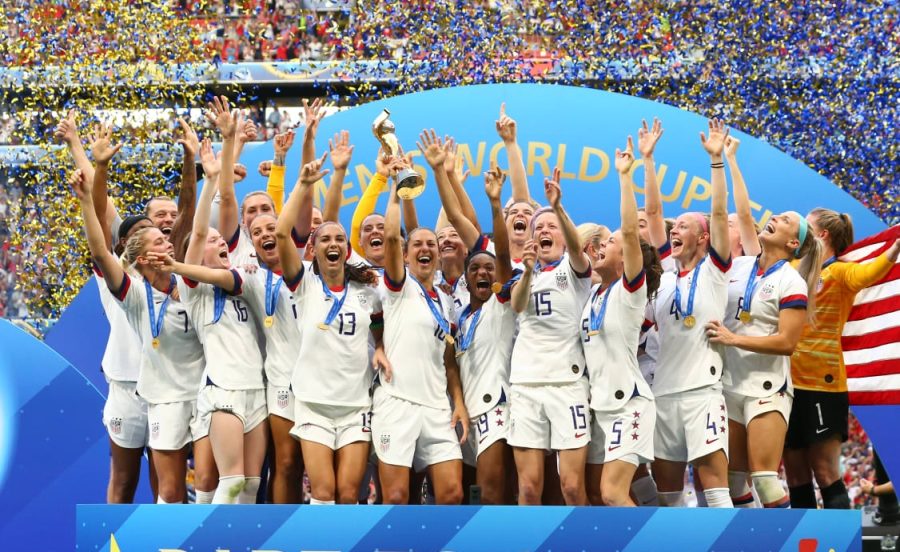

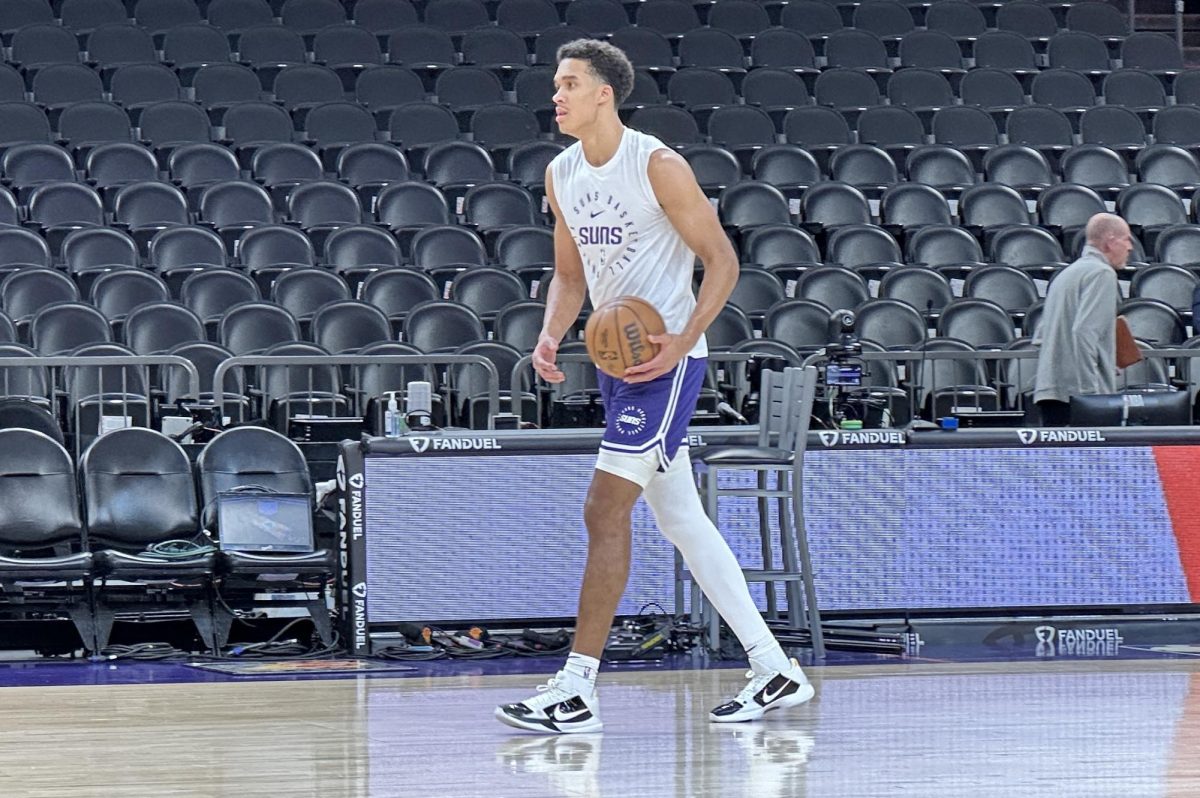
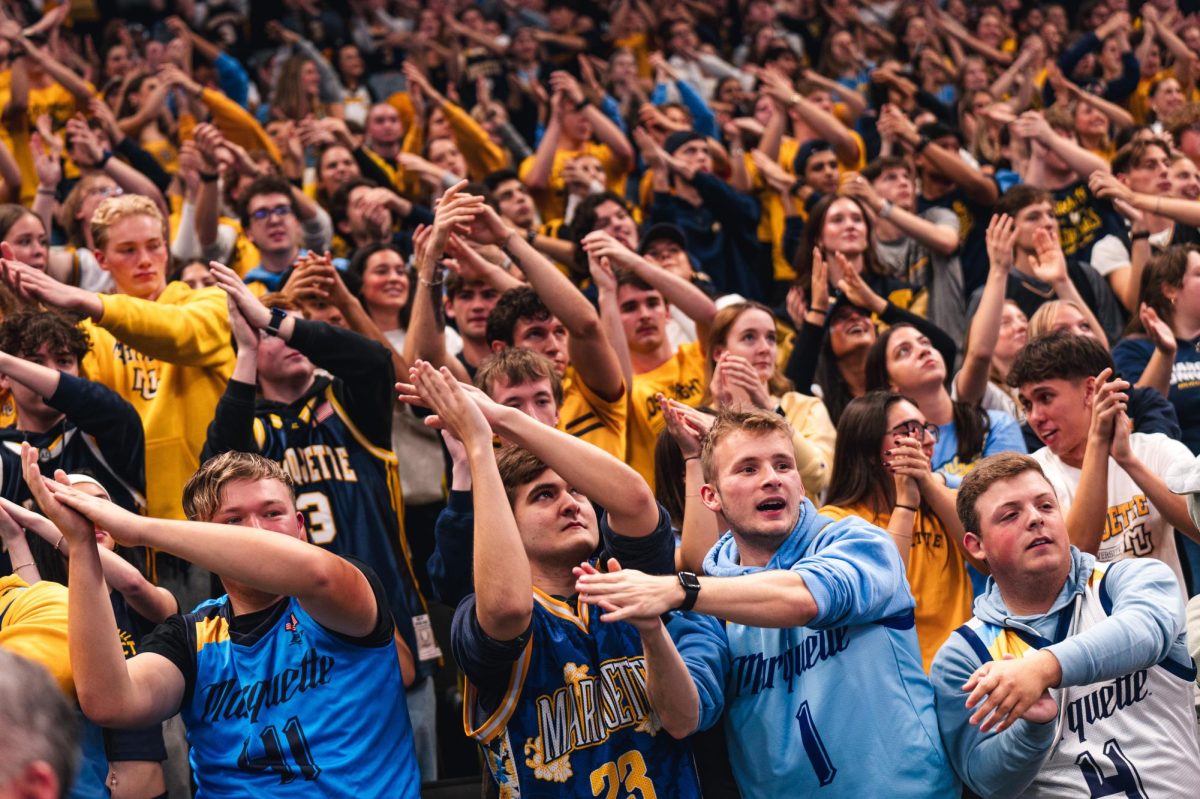
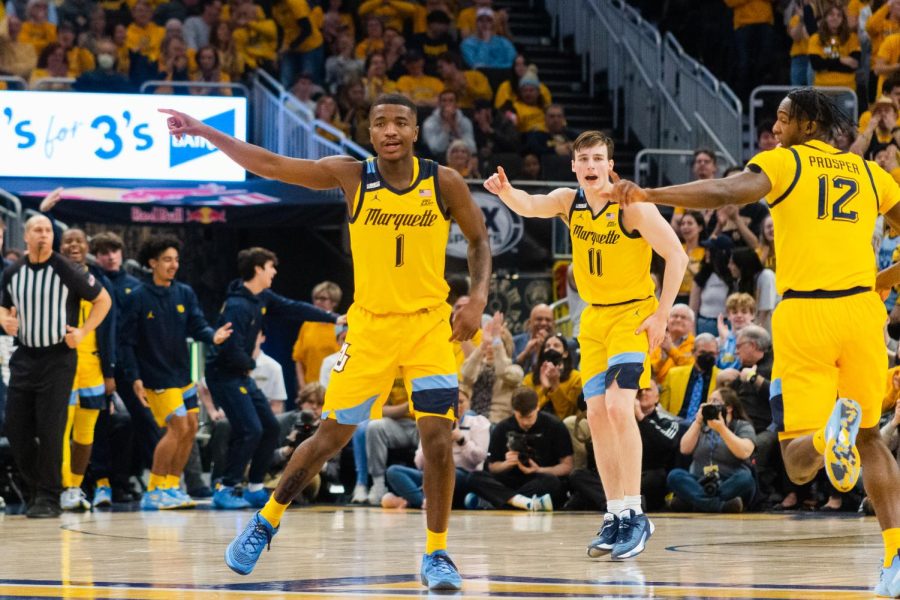
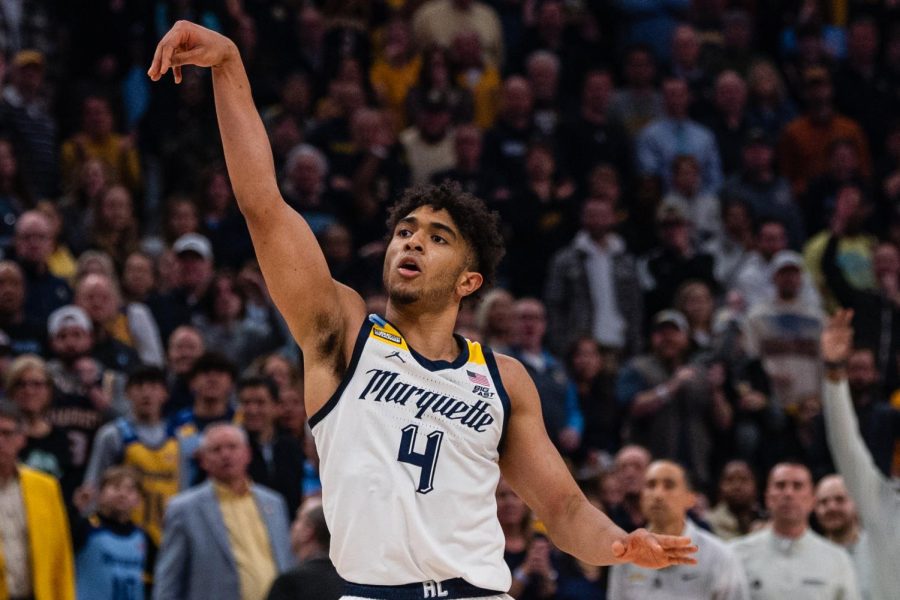
Ed Sabish • Apr 14, 2021 at 4:42 pm
Hey Bryan, Congratulations on a very well prepared and presented article. Tremendous amount of research and thought.
Keep up the good work.
GPA Sabish